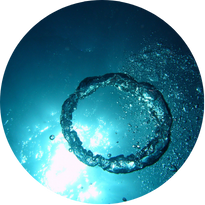"A walk in nature is the best medicine," once said the famous American writer Ralph Waldo Emerson. Yet in our modern, hectic world, this wisdom often seems to have been forgotten. What if the answer to our quest for inner peace actually lay right at our doorstep? In an age where stress and burnout have become commonplace, nature itself could provide the necessary medicine – with a blend of mindfulness and natural elements. Let us together delve into the world of nature's unexpected wisdom.
Finding inner peace seems to be a challenging task, especially in a world full of distractions. However, the idea of finding tranquility and balance in nature is by no means new. This approach focuses on experiencing the present moment through mindfulness and integrating natural elements into our daily lives. Mindfulness, in this context, involves the conscious perception of the present moment without judgment. Nature provides a perfect backdrop for this, free from stressors such as technology and noise. By consciously experiencing environmental elements, such as sounds of nature or foraging for wild herbs, we can build a deeper connection to the environment and ultimately to ourselves.
The health benefits of nature and mindfulness are extensive. Regular mindfulness practices in nature, such as conscious walking, promote presence in the moment and can significantly enhance mental well-being [1]. Furthermore, wild herbs, which can often be foraged directly from nature, offer astonishing amounts of nutrients and antioxidants that contribute to a healthy diet [2]. Additionally, natural sounds, like the soothing rush of a stream or the chirping of birds, can reduce stress and improve concentration [3]. Gardening, as a form of physical activity, can further boost our well-being and provide a connection to the natural world [4]. All of these activities contribute to promoting not only physical but also mental health.
Research supports these benefits in impressive ways. A study on mindfulness during walking shows significant improvements in present-moment awareness and positive effects on participants' mood. This study utilized the Experience Sampling Method ESMExperience Sampling Method to measure affective states in real-time, although the sample size of 29 participants was relatively small [1]. Another significant research finding comes from a review of the effects of natural sounds; it highlights that such sounds have measurable effects on heart rate and blood pressure, although the results regarding additional parameters such as perceived stress were less consistent [3].
An intriguing dimension is added by wild herbs, which can compete with or even surpass well-known foods in their antioxidant power [2]. Studies on gardening also suggest that this activity can enhance mental well-being through social connectedness and a sense of belonging, although there is limited supporting evidence for the wider population [4]. Overall, these studies showcase a valuable method for integrating natural and mindful practices into daily life to promote health.
How can we incorporate the wisdom of nature into our daily lives? Start with a daily walk in nature, consciously focusing on your surroundings. Notice the colors, sounds, and scents to sharpen your mindfulness [1]. Forage for edible wild herbs wherever possible, and add them to your diet to benefit from their extraordinary antioxidants [2].
Additionally, consider including gardening as a relaxing yet physically engaging activity in your weekly schedule [4]. Finally, try to enrich your environment with natural sounds. Whether through recorded sounds or by opening a window to enjoy birdsong, these sounds can help reduce stress and enhance concentration [3].
Nature offers us a wealth of opportunities to promote inner peace and health. From mindful walking to foraging for wild herbs to integrating natural sounds – these simple steps can have a profound impact on our well-being. Let nature inspire you and discover how its wisdom can help you achieve a more balanced and healthier lifestyle.
This health article was created with AI support and is intended to help people access current scientific health knowledge. It contributes to the democratization of science – however, it does not replace professional medical advice and may present individual details in a simplified or slightly inaccurate manner due to AI-generated content. HEARTPORT and its affiliates assume no liability for the accuracy, completeness, or applicability of the information provided.














